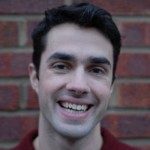Lien vers Pubmed [PMID] – 31009460
Lien DOI – 10.1371/journal.pntd.0007012
PLoS Negl Trop Dis 2019 04; 13(4): e0007012
Dengue continues to be the most important vector-borne viral disease globally and in Brazil, where more than 1.4 million cases and over 500 deaths were reported in 2016. Mosquito control programmes and other interventions have not stopped the alarming trend of increasingly large epidemics in the past few years. Here, we analyzed monthly dengue cases reported in Brazil between 2001 and 2016 to better characterise the key drivers of dengue epidemics. Spatio-temporal analysis revealed recurring travelling waves of disease occurrence. Using wavelet methods, we characterised the average seasonal pattern of dengue in Brazil, which starts in the western states of Acre and Rondônia, then travels eastward to the coast before reaching the northeast of the country. Only two states in the north of Brazil (Roraima and Amapá) did not follow the countrywide pattern and had inconsistent timing of dengue epidemics throughout the study period. We also explored epidemic synchrony and timing of annual dengue cycles in Brazilian regions. Using gravity style models combined with climate factors, we showed that both human mobility and vector ecology contribute to spatial patterns of dengue occurrence. This study offers a characterization of the spatial dynamics of dengue in Brazil and its drivers, which could inform intervention strategies against dengue and other arboviruses.

